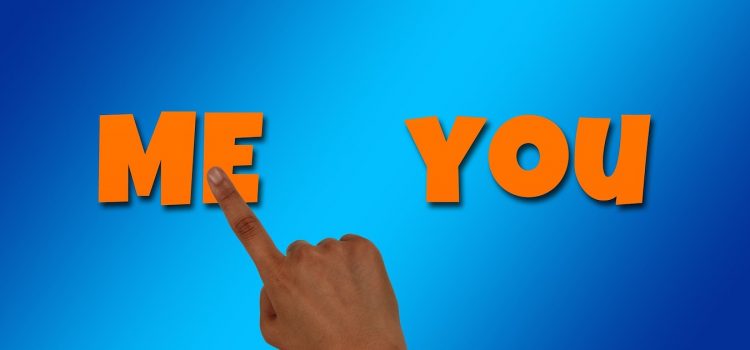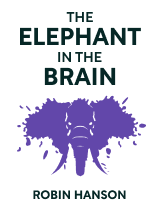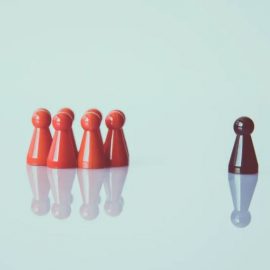

This article is an excerpt from the Shortform book guide to "The Elephant in the Brain" by Robin Hanson and Kevin Simler. Shortform has the world's best summaries and analyses of books you should be reading.
Like this article? Sign up for a free trial here .
What are your true reasons for doing what you do? What do you want people to think your reasons are?
In The Elephant in the Brain, software engineer Kevin Simler and economics professor Robin Hanson controversially argue that human behavior is driven by selfish motives—and that your own brain is hiding them from you. They contend that humans evolved to appear selfless even as they put themselves before others.
Read more for this intriguing discussion about human motives.
Human Motives Are Selfish
At first glance, the idea of hidden human motives may seem convoluted—why hide our true intentions not just from others, but from ourselves? The answer, according to Simler and Hanson, is that, as a cooperative social species, we evolved to advance our own interests while appearing as selfless as possible—and it’s easier to deceive others if we’ve already deceived ourselves. We’ll explore how human life is organized around a set of social games and how our hidden selfish motives help us get ahead in these games.
We Excel at Social Games
Simler and Hanson believe hidden selfish motives are an evolutionary adaptation. They argue that the human brain evolved to excel simultaneously at selfishness and cooperation. The authors observe that humans are a fundamentally social species—we depend on cooperation to survive.
They point out that humans began as foragers—small nomadic bands who depended on each other’s help to find and share food, care for the sick and injured, and defend the band from predators and rival humans. They argue that this kind of cooperation requires an egalitarian culture—if any one individual or clique tries to dominate the group, they’ll ruin life for everyone. At the same time, individuals in these groups compete with each other for resources, mates, and social influence.
| The Evolutionary Basis of Altruism Biologists, anthropologists, and historians have long debated the origins of altruism. From an evolutionary standpoint, why should we help others when those others might be our rivals for resources, territory, and mates? There are no clear answers, but plenty of theories. For example, biologist Richard Dawkins believes that cooperation and altruism are selfish—but for different reasons than the ones Simler and Hanson describe. In The Selfish Gene, Hawkins argues that genes are the driving force of life and that cooperation at the organism and species level is merely one strategy by which genes maximize their chances of replicating themselves. In other words, in family groups and close-knit societies (like small foraging groups), genes “know” that copies of themselves exist in an organism’s relatives and offspring. If an individual dies saving the rest of his family, that individual’s genes survive and have more chances to reproduce themselves. On the other side of the spectrum, in Humankind, historian Rutger Bregman argues that humans are inherently compassionate and cooperative. He also points to the egalitarianism of foraging societies, but unlike Simler and Hanson, he concludes that human nature is fundamentally altruistic and that competitive impulses are a secondary invention. Specifically, he argues that violence, jealousy, and inequality only appeared with the advent of farming, private property, and other trappings of civilization. Meanwhile, zoological research increasingly points to the fact that altruism isn’t uniquely human. According to a popular legend, anthropologist Margaret Mead cited a healed femur as the start of civilization. The story might not be true—but it points to a shared belief that our capacity to act selflessly by helping an injured group member is what sets us apart from other animals. Yet chimpanzees have been observed treating each other’s wounds while other animals have been seen medicating themselves with plants (and learning to do so by watching others). |
Because of the tension between selfishness and altruism, Simler and Hanson argue that the human brain evolved to play social games—competitions that require balancing self-interest with cooperation. Social games typically revolve around three main goals:
- Sex—because we have an instinctual drive to reproduce, many of our behaviors are designed to attract mates.
- Social status—the higher your regard within a group, the better you’re treated. You can raise your social status through dominance (forcing your will on others) or prestige (winning respect from others).
- Politics—humans form coalitions, which favor political acumen over physical dominance. Simler and Hanson explain that even the strongest individual can easily be defeated by a group of opponents if that individual lacks allies.
Simler and Hanson argue that social games require two main skills: the ability to attract good partners (mates, friends, allies) and to judge potential partners. In practice, that means that everyone is constantly judging everyone else—we’re watching to see who’ll make a good partner, and because we know we’re being watched, we want to advertise that we’ll make good partners.
(Shortform note: Perhaps this is why we have such a strong capacity for intuitive snap judgments. As Malcolm Gladwell argues in Blink, we often judge people and situations immediately without knowing how we reached the conclusion we did. In particular, Gladwell suggests that we excel at reading almost imperceptible expressions on other peoples’ faces—a useful skill if human life really does amount to constant social games.)
We Cheat at Social Games
Simler and Hanson emphasize that social games are competitive and not everyone can win. To maximize our chances, they say, we’ve evolved the skills needed, not just to play these games, but also to cheat at them. To see how, we need to understand how norms regulate our social games and how we can get the upper hand by evading these norms.
(Shortform note: It’s unclear to what extent this propensity to cheat is conscious. Simler and Hanson argue that our brains deliberately hide our true selfish motives from us, suggesting that any cheating is, by design, unconscious. Yet the prevalence of social and religious proscriptions against covetousness, jealousy, theft, and so on suggests otherwise. If we have to be told not to covet someone else’s spouse or possessions (that is, their social game “prizes”), that suggests that we’re consciously aware of doing so and can control our thoughts and behaviors with regards to this tendency.)
Norms of Society
Human cultures regulate selfish behavior and competition with norms—which are the rules and standards of a society. Sometimes they’re codified as laws and enforced centrally, but most often, norms are collectively enforced by the group as a whole.
Because norms of society evolved as a way to enforce pro-social behaviors like cooperation, sharing, and non-violence, our selfish motivations are at odds with the norms that govern us. But, rather than making humans less inherently selfish, Simler and Hanson say that norms led humans to evolve ways to advance our selfish motivations while appearing to adhere to social standards. In other words, we’ve developed a whole range of strategies for avoiding norm enforcement so that we can get away with “cheating” at our social games. These strategies relies on deceiving other people—the idea is that we can act selfishly and competitively while convincing everyone that our motives are pure and we’re obeying social norms.

———End of Preview———
Like what you just read? Read the rest of the world's best book summary and analysis of Robin Hanson and Kevin Simler's "The Elephant in the Brain" at Shortform .
Here's what you'll find in our full The Elephant in the Brain summary :
- How human behavior is driven by selfish motives
- Why your own brain is hiding your intentions from you
- Why the purpose of education is to certify future employees






